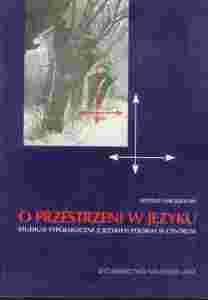|
Abstract.
Maciejewski Witold, O przestrzeni w języku. Studium typologiczne z językiem polskim w centrum (Language and Space. A Typological Study based on Polish), Adam Mickiewicz University Press, Poznań 1996. Pp. 178. Seria Językoznawstwo nr 19. ISBN 83-[zasłonięte]-0662-7. ISSN 0[zasłonięte]239-76. Polish text with a summary in English.
The linguistic diversification may have its source in human orientational strategies. Two strategies are assumed to dominate: one, called locative, is determined by the question "where?", and another one, qualitative, is based upon searching after qualities of objects ("how?", "which?"). As a rule, languages have grammatical exponents of both strategies in various degrees. Of the ten examined languages Finnish, Hungarian and Turkish are locative, while Fula (West Atlantic) is the most qualitative language. Polish is a predominantly locative language with its prepositions, cases and a relatively poor system of gender distinctions. The qualitative languages are marked out by extended categories of gender, classifiers and lack of adpositions.
The orientational strategies are based on universal concepts, but they are implemented by language-specific sets of semantic distinctions. Analysis of these distinctions may lead to a linguistic hypothesis about diversification in human ways of seeing the world.
Witold Maciejewski, Instytut Lingwistyki, Uniwersytet im. Adama Mickiewicza, ul. Miedzychodzka 5, 60-371 Poznań, Polska - Poland.
|

